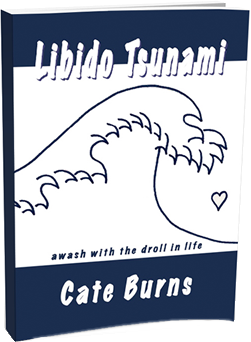Once a Week I Buy a Cucumber

Once a week, I buy a cucumber. I hadn’t realized this fact until the pandemic, when I began to order food from a grocery store for delivery to my home. This forced me, for the first time, to draw up a list of food I required: one cucumber, four potatoes, one head of romaine lettuce and broccoli.
Before COVID19, I was a care-free impulse shopper. I’d drive my car every day to work or to volunteer jobs and, passing a grocery store, I’d think, Oh, I could use a potato. I’d dash in and grab a few potatoes for good measure plus anything else that struck my fancy.
Thoughts about groceries always reminded me of Aunt Jane. I’d loved visiting my ninety-year-old aunt, a retired teacher who’d never married. I admired her lovely pastel-colored house in San Francisco where she’d lived alone for over fifty years. One morning, I found her writing a list of groceries, her favorite long-titled cook book opened in front of her, The Better Brain Book: The Best Tools for Improving Memory and Sharpness and Preventing Aging of the Brain by David Perlmutter, M.D. His recommendations must’ve worked for her. At ninety, she hustled about normal routines in her two-story house with no aides, played piano and loved to have political debates about complex issues.
“Are you making a list of groceries?” I asked, thinking how cute and quaint she looked.
Nothing got by her. She must’ve noticed my slightly patronizing attitude. “Don’t you?” she asked.
“Well, no,” I said, pondering. “I guess I just grab what I need from a store every so often.” Saying this out loud, I sounded slap-dash, maybe irresponsible.
“But, how do you know what to cook?” she asked with a quizzical frown.
We both gazed at her recipe for lentil bean soup that she planned to make for our dinner (excellent brain-food) and at the needed ingredients on her grocery list.
“I don’t know. I throw things together and rarely use a recipe. When I do, I get frustrated and change it completely by the time I’m done, often with disastrous results.”
Aunt Jane stared at me as if she could barely comprehend. I didn’t blame her. When it came to food preparation, we were like different species of homo sapiens. But, that evening, her lentil soup proved to be delicious.
In a few years, at ninety-three, sadly, Aunt Jane’s heart gave out, but her mind remained vibrant to the end. Thank you, Dr. Perlmutter. I asked her executor, my cousin, for one thing: The Better Brain Book. I loved my aunt’s notes and the stains on the pages. I still couldn’t follow recipes, even to honor Aunt Jane’s memory. I enjoyed reading the book to remember my aunt, for its valuable information on brain health and new foods I might want to explore.
At the beginning of the pandemic, while figuring out which stores seemed the safest to enter at certain hours when the least number of people would be there, or which stores reliably delivered, I often skipped buying garden-fresh items: one cucumber, four potatoes, romaine and broccoli. In a store, I’d always enjoyed handling each vegetable and picking out my favorites. What if the store delivered old or wilted lettuce or huge potatoes when I wanted small ones?
But I felt sad without fresh veggies and realized they’d provided direct earth to mouth contact for me. I could visualize them being pulled from the dirt and traveling to me. When I handled them, they seemed to tell me: This is how much energy Mother Earth gives to you each week. These few precious items create your happy body and mind. I let go of control and allowed clerks to choose my veggies.
Being mostly at home during the pandemic, I find myself closer to life’s natural rhythms and my vegetables personify nature’s seasonal processes. Without air travel and the daily distraction of driving here and there in my car, I focus on regular habits: waking, working, sleeping, taking long walks and eating each meal in its turn. My body loves the dependable routine and I’ve grown to savor this repetitive security. The daily rhythm feels deeply satisfying, just as the vegetables’ growth cycles do when I savor their presence in my life. Perhaps satisfaction with these rhythms is encoded from an ancient pre-urban human pattern that I can now consciously join. The pandemic gives me the gift of time to tune into more basic needs and relish them.
I no longer rush into stores to pick up one or two things. Now, like Aunt Jane, I write a grocery list. I’ve found grocery store hours when there’re few folks around. When the COVID19 numbers rise again (in the seemingly endless cycle of highs and lows), I know which delivery services I can count on. Between the two, I have a predictable supply of produce.
Knowing I can depend on receiving fresh food directly from the ground has become a delightful and necessary part of my pandemic rituals. I make my grocery lists with a smile, remembering Aunt Jane and knowing my produce has been declared brain healthy by The Better Brain Book. I more deeply appreciate my weekly cucumber.

Cate Burns is the author of Libido Tsunami: Awash with the Droll in Life, in which she unearths the ludicrous in the emotional live traps surrounding us — in families, friends and disastrous romances. Get it on Amazon today.
